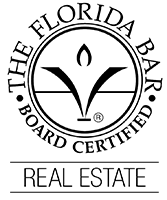Should You Tear Up Your Old Will When You Sign A New One?
Should You Tear Up Your Old Will When You Sign A New One?
Should you tear up your old will when you sign a new one? It depends. Here are the general rules you need to think about if you’re a Florida resident:
- You can sign a last will and testament that names who gets your estate when you die. If you die without signing a will, then your estate passes intestate, generally to your spouse and children, or your parents, or your siblings, as set out in the probate code. So, the first rule is to sign a last will and testament so you can choose who gets it.
- If you sign a will, but no one can find the original of it when you die, then your estate will probably pass intestate, as if you had no will.So, the second rule is to keep the original of your last will and testament in a safe place where it will be found after you die.
- If you signed a last will and testament and it is filed with the Clerk after you die, someone still might claim it is invalid because it was not signed with the proper formalities or was the result of undue influence or was invalid because you were incapacitated, etc. So, the third rule is to be sure to follow the formalities of making a will, which is why it is best for a lawyer to prepare it and supervise your signing it.
- If someone successfully contests your will and you tore up your prior wills, then your estate would pass intestate, as if you had no will.
So, the fourth rule, and the answer to the title of this blog entry, is not to tear up your old will if you prefer it over your estate passing intestate.






